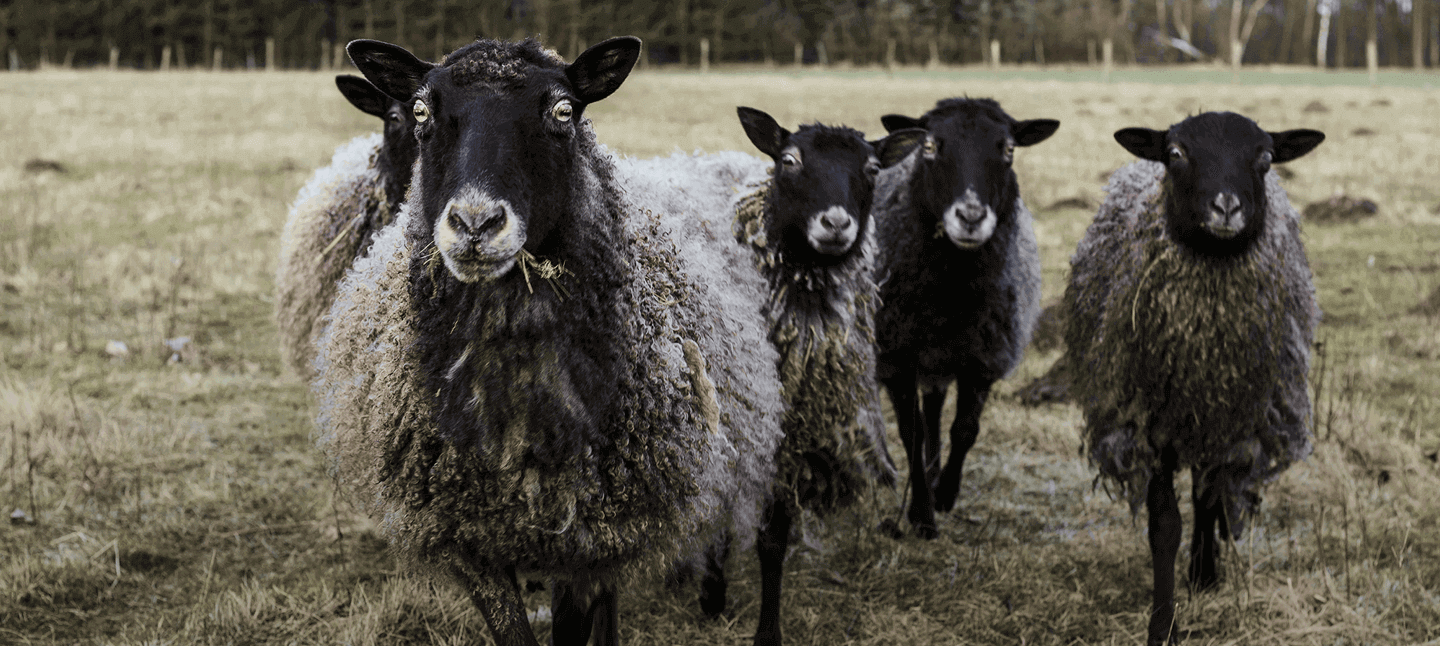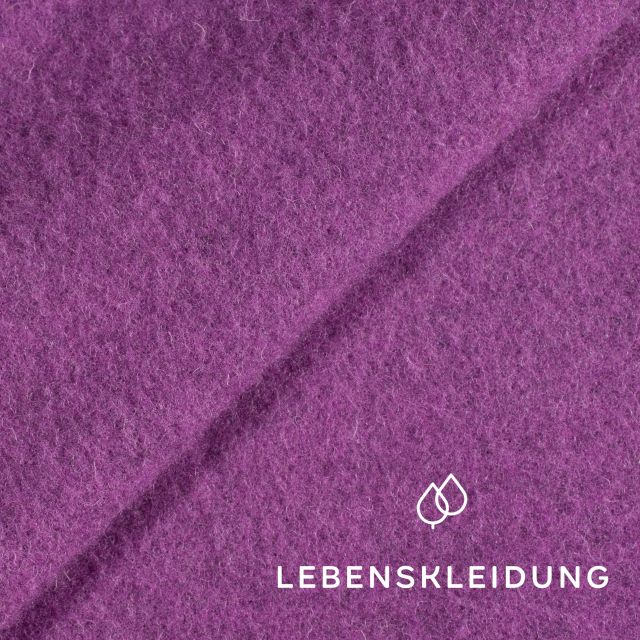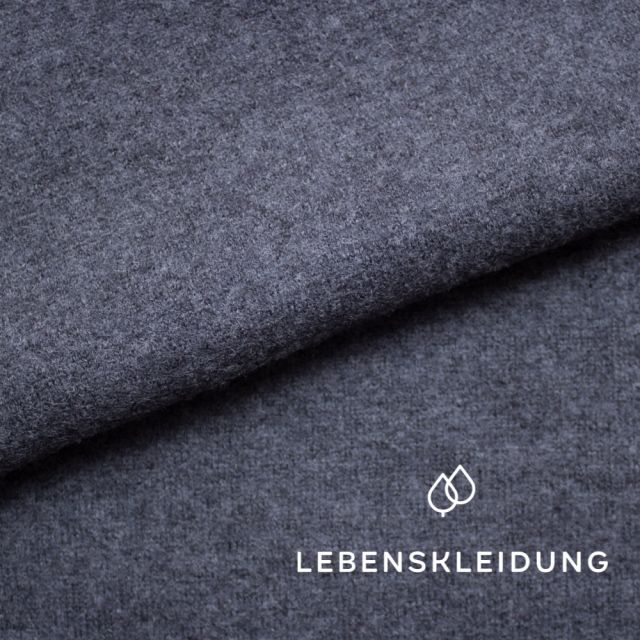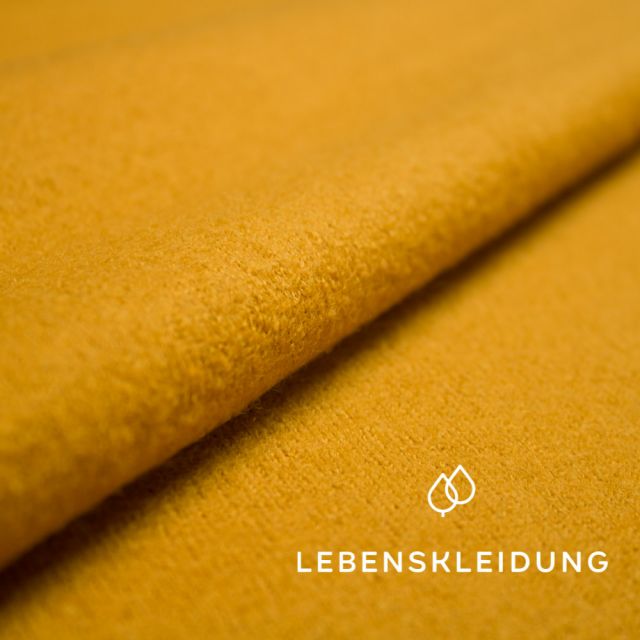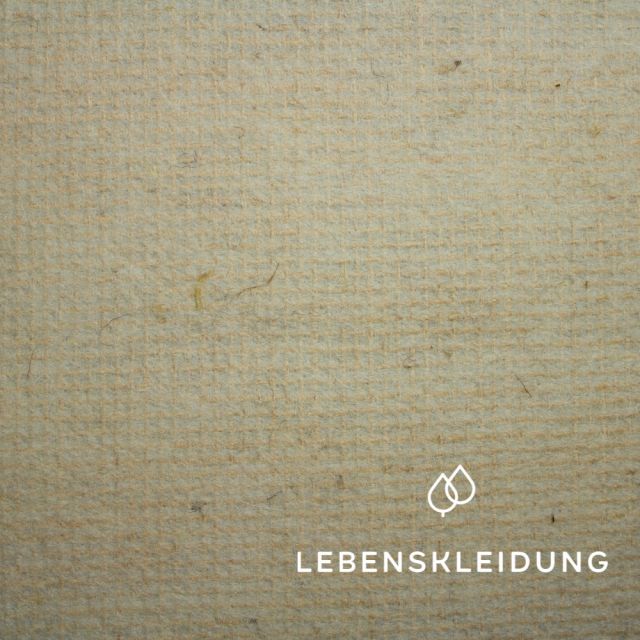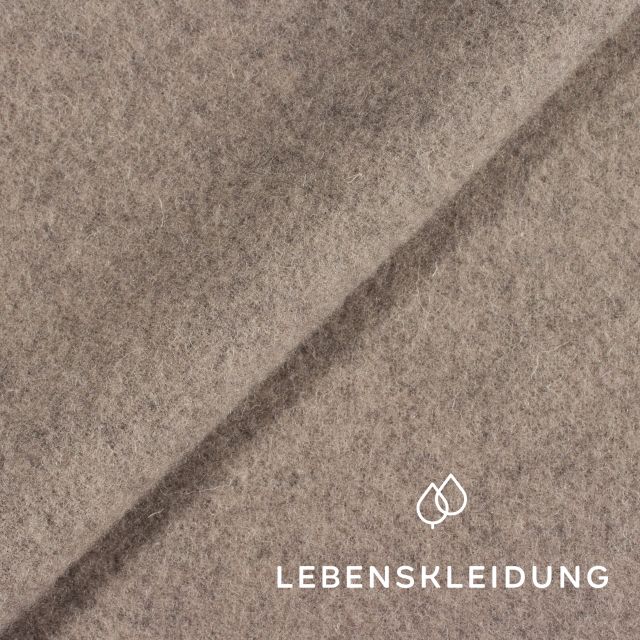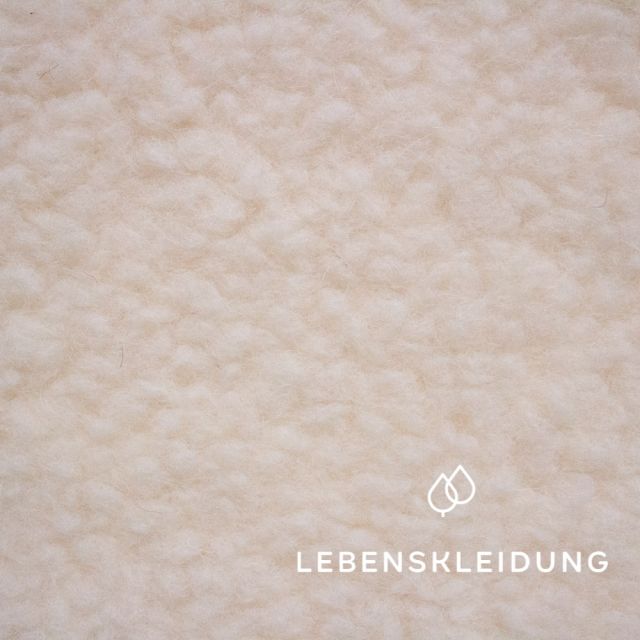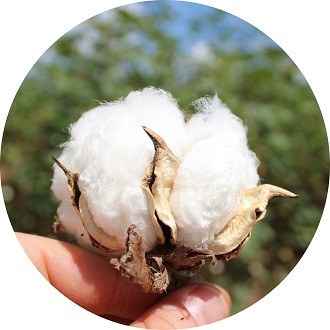Organic wool at Lebenskleidung
Since the Winter of 2018 we carry woolen fabrics that couldn’t be more regional. Under the name elbwolle™, Ute and Marcel Luft, who live in beautiful Wendland, have in recent years grown and prospered an idea that is as obvious as it is special. The background was the observation that the wool of many traditional sheep breeds, which are used in the Wendland as natural "lawnmowers" for dyke care, is not or not sufficiently used. Other countries, so the economically convincing explanation, are simply faster in the utilization of sheep – but at the price that the natural rhythm of the shear is being adjusted and modified in ways that oftentimes aren’t considerate of the sheep’s wellbeing.
Ute and Marcel start right here. They’re only shearing their Gotland sheep twice a year, and they also collect sheep's wool from the Ark region on the Elbe, which they then knit into yarn, thick wool and, for the first time, into fabrics. For the region of Wendland that’s benefitial in multiple ways: elbwolle™ on the one hand creates new jobs and also protects old sheep breeds. The fact that the path from sheep to finished fabric taken together is just 900 kilometers long and that we were already able to visit the spinning mill in Brandenburg and the weaving mill in Bavaria makes the cooperation so important to us: It is the first regional project that we’ve attended and built up from scratch.
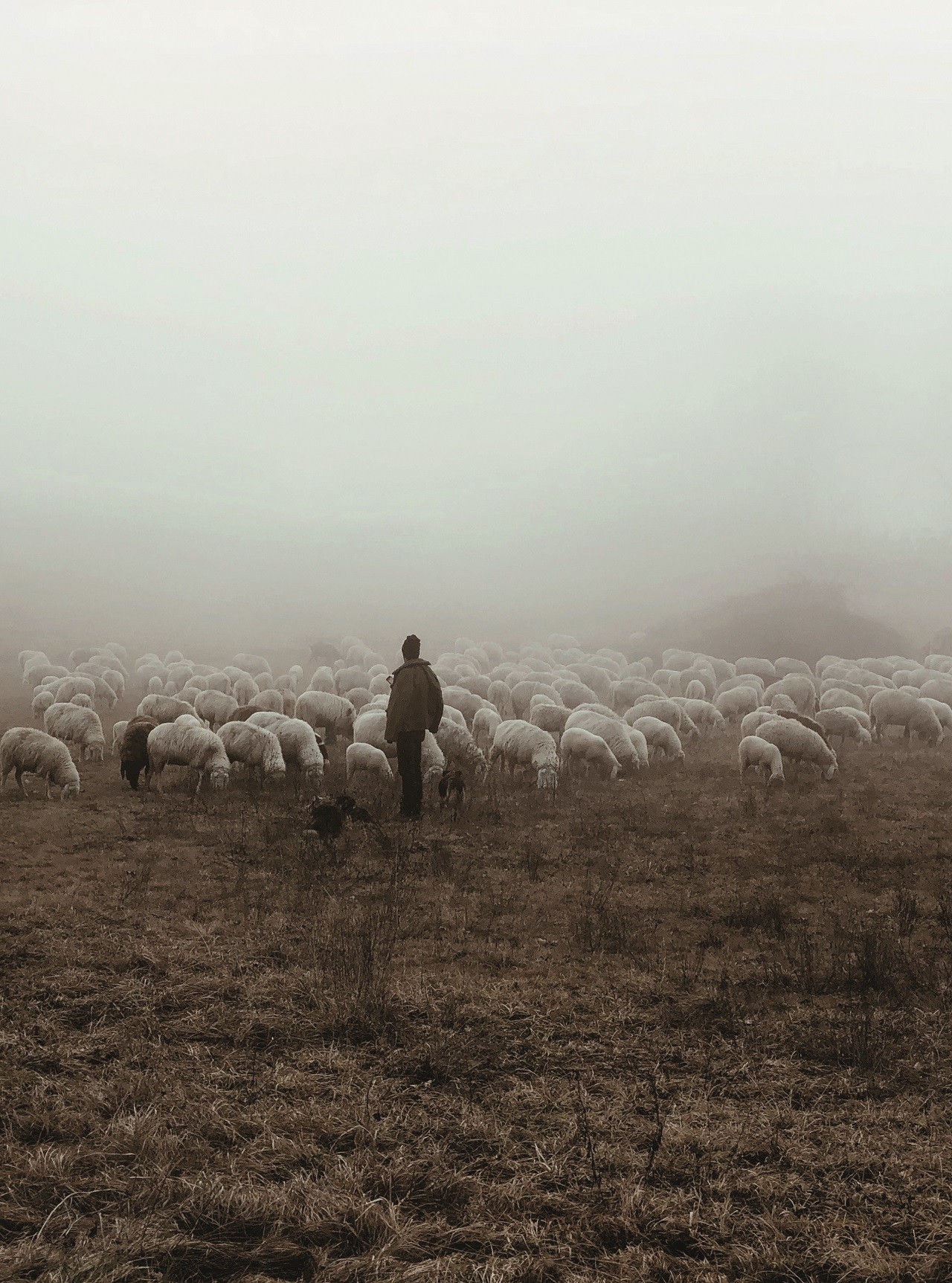
Wool from a true place of longing
Lüchow is located almost exactly in the middle between Berlin and Hamburg. In the Wendland – an area that is, how we often hear and read, structurally weak. But once you tour the area and hear the stories of those who make their dreams come true – quite contrary to the pace of our times – you begin to understand that this is not a no-man‘s-land, but a place of longing.
Ute and Marcel Luft are two rather unruly people who are immediately likeable. And they are the faces behind our new wool fabrics. In 2006, the two moved from their Stuttgart offices to Weitsche, a small village on the other end of the country. The plan: Swap the digital world of Typo3, servers and Internet databases for a very analogue self-catering farm with real fruits and vegetables, real animals – and in strict time with nature. The tact of nature is a good keyword anyways, because it is not completely unimportant in our cooperation with Ute and Marcel Luft. Namely, under the name elbwolle they have in recent years grown and prospered an idea that is as obvious as it is special. The background was and is the observation that the wool of many traditional sheep breeds, which are used in the Wendland as natural lawnmowers for dike care, is not or not sufficiently used. Other countries, according to the economically convincing explanation, are simply faster when it comes to making use of sheep wool – but at the price of getting rid of the animal’s natural coat change and adding more growth of wool and skin which makes the sheep constantly be dependent on humans and the shearing. A process that couldn’t be more far from what’s considered natural. Ute and Marcel want to do it differently. That is why they only shave their Gotland sheep twice a year and are collecting sheep‘s wool from the Ark region on the Elbe, which they then knit into yarn, thick wool and, for the first time, into cloth. For the Wendland area this is a great thing in two ways: on the one hand, elbwolle creates new jobs and also protects old sheep breeds. The fact that the journey from sheep to the finished fabric is only 900 kilometers long and that we were able to visit both the spinning mill in Brandenburg and the weaving mill in Bavaria makes the cooperation so important for us: It is the first regional project we have accompanied and built right from the beginning. What reads like a beautiful utopia is actually reality. Using regional resources, strengthen infrastructures, producing organic fertilizers – and at the same time supply the raw material for one of our favorite fabrics this season. So, it goes almost without saying that elbwolle and Lebenskleidung had to become a love at first sight. This new material is made in carefully selected quantities – no more and no less, because the Wendland sheep work in their own rhythm.
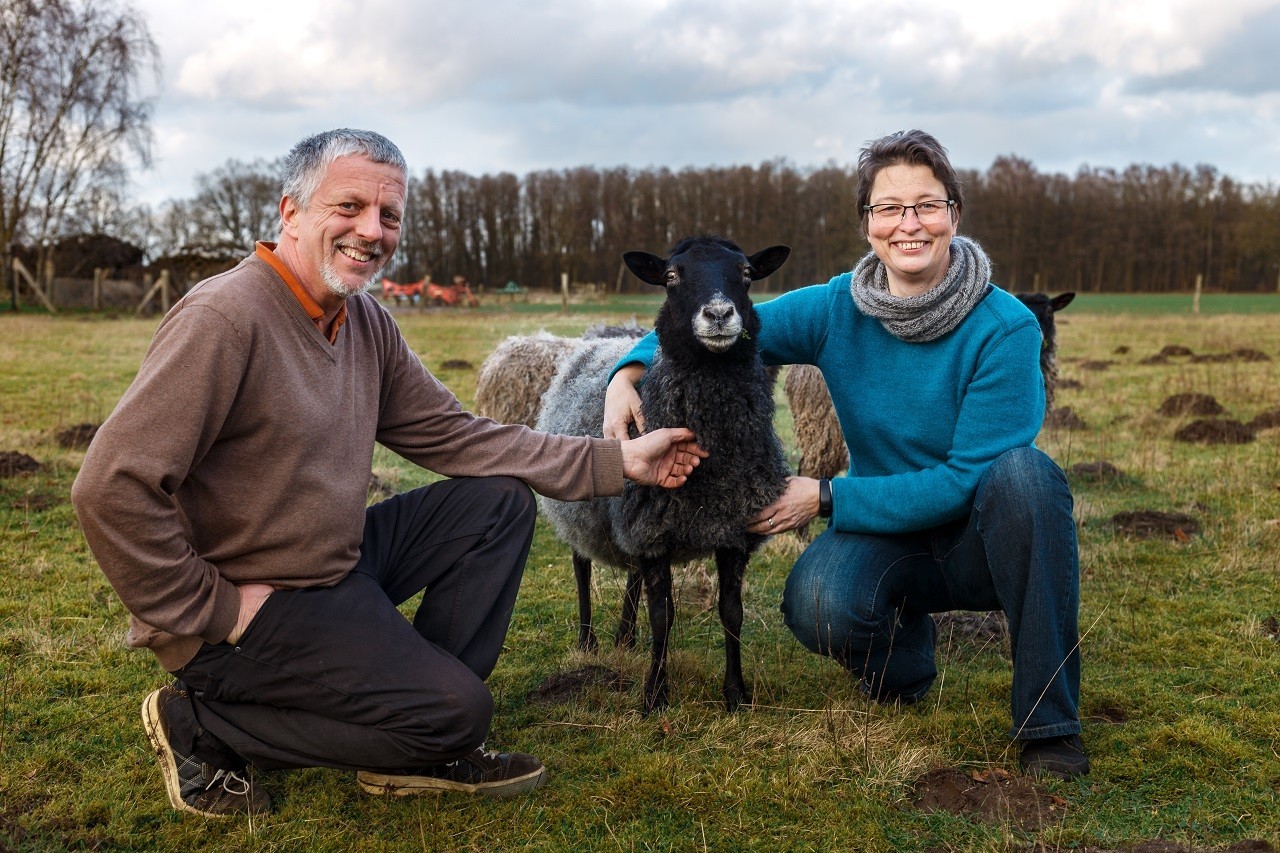
Ute and Marcel Luft from Lüchow/Germany, the keepers of the wool tradition

